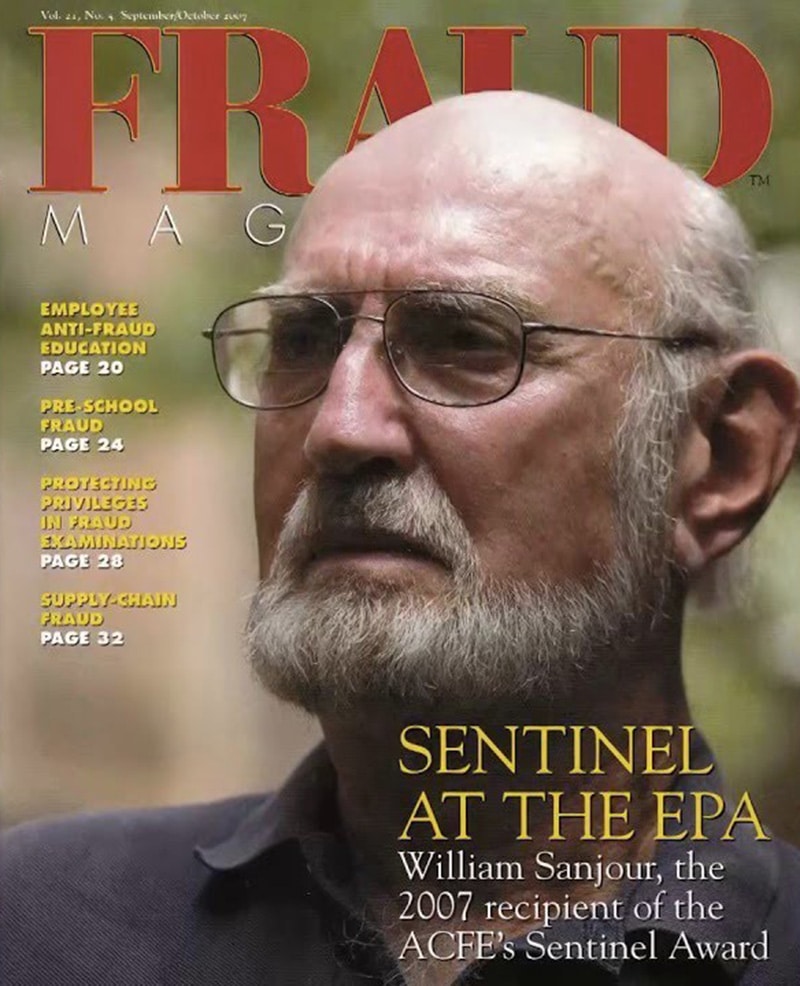Sentinel William Sanjour
William Sanjour worked for the Environmental Protection Agency for more than 30 years, starting as a consultant in 1960, and several years later becoming the branch chief of the Hazardous Waste Management Division, where he managed hazardous waste damage and treatment technologies.
Sanjour’s efforts led to the passage of the Resource Conservation and Recovery Act of 1976 (RCRA), which allowed him to develop regulations for the treatment, storage, and disposal of hazardous waste. However, this soon turned into a long battle with the EPA.
A Precedent-Setting Case
Represented pro bono by Kohn, Kohn & Colapinto in Sanjour v EPA, Sanjour challenged rules written by the Federal Office of Government Ethics which restricted EPA workers’ rights to speak to environmental community groups.
In 1995, Sanjour won a landmark suit against the U.S. government, which established the First Amendment rights of federal employees to criticize their agencies.
The court found that the government had failed to demonstrate that the interests of the employees and that Government employee speech is protected by the First Amendment and can only be infringed when the government demonstrates that the burden on such speech is “outweighed by it’s necessary impact on the actual operation of the government.”
Sanjour v EPA has stood the test of time. Although controversial when it was decided, the Sanjour precedent is now widely accepted and has not been criticized.
“For the reasons set forth herein, plaintiffs’ motion for issuance of a final order is granted to the extent it requests an injunction against the enforcement of restrictions placed on reimbursement for reasonable nonofficial travel expenses as prohibited on page 3 of EPA Ethics Advisory 91-1 and under 5 C.F.R. §§ 2635.807(a) & § 2636.202(b) and a judgment declaring the unconstitutionality of the entire scheme.”
Conclusion, Sanjour v EPA, United States District Court, District of Columbia
First Amendment Whistleblowers
The Sanjour case demonstrates that the First Amendment safeguards government employees’ right to speak out on matters of public concern, even if it relates to their job. This protects them from retaliation for exposing wrongdoing, especially if it stems from an abuse of power.
This means employers are prohibited from taking adverse actions against whistleblowers, such as firing, demotion, harassment, or discrimination. Based on Sanjour federal employees at the GS-15 level and below can challenge the constitutionality of executive branch rules based on their potential chilling effect. Federal court access is available for pre-enforcement challenges. If an employee waits to be victimized by an unconstitutional regulation, they will be required to use the administrative processes available under the Whistleblower Protection Act. Whistleblowers who experience retaliation may be entitled to reinstatement, back pay, compensatory damages, and legal fees.
The protections for whistleblowers are a complex patchwork of constitutional provisions, federal and state laws, and agency-specific regulations. It’s highly recommended that whistleblowers consult with an experienced attorney specializing in whistleblower laws to understand their rights and navigate the legal process.

Fraud Magazine 2007
William Sanjour received the 2007 Association of Fraud Examiners (ACFE) Sentinel Award

